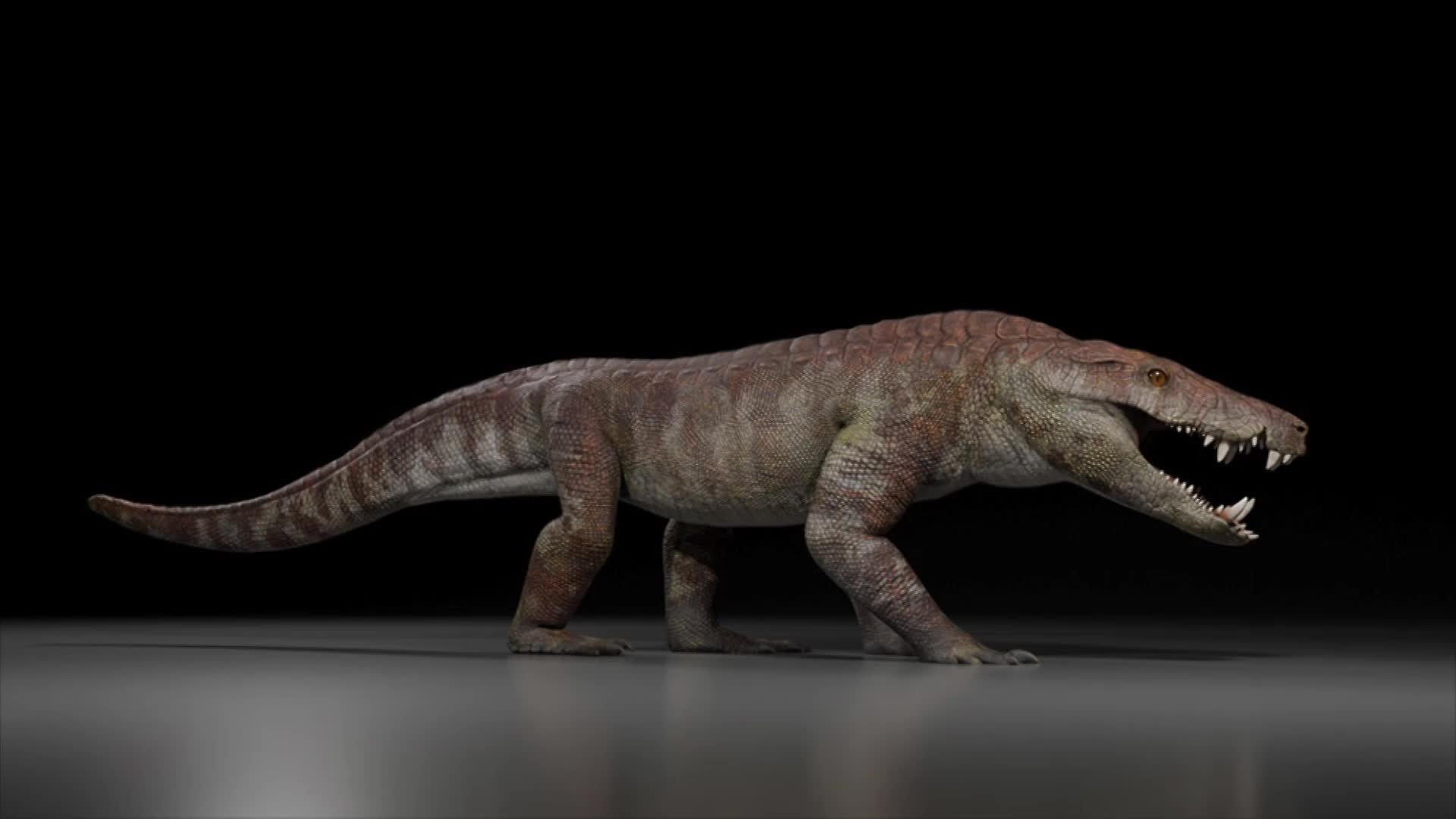
Hunter of hunters - Dinosaur-era land crocodile fossil unearthed in Argentine Patagonia
"Palaeontologists from Argentina's National Scientific and Technical Research Council (CONICET) and local universities have discovered fossil remains of a carnivorous crocodile in Santa Cruz, Patagonia, dating back approximately 70 million years to the Late Cretaceous. Footage filmed in Buenos Aires on Friday shows petrified bone fragments, including parts of the skull and jaws, unearthed in the Chorrillo Formation 30 kilometres south of El Calafate, as a researcher and the discoverer examine and work with the fossils. According to specialists, the specimen measured between 3 and 3.5 metres in length and weighed around 250 kilogrammes, making it the top predator of its ecosystem. Unlike modern crocodiles, Kostensuchus was adapted to a terrestrial lifestyle. Its side-facing eyes, forward-positioned nostrils, and powerful jaw muscles supported more than 50 sharp, serrated teeth, similar to those of predatory dinosaurs, indicating it hunted primarily on land. "This is an extraordinary discovery because it is a wonderfully preserved skull of a crocodile that lived towards the end of the dinosaur era; we are talking about 70 million years ago. And it was a big hunter. That means the predatory dinosaurs were not alone. They had to share their food with creatures like this one," explained CONICET researcher Fernando Novas. The discovery offers fresh insights into the region’s ecosystem millions of years ago, when the climate was warmer and wetter than it is today. "Usually, when you find fossils, it is indescribable. It is hard to put into words that moment when, after millions of years, you see the fossil there, or the skeleton, or a sign of it coming out of the rock," shared Marcelo Pablo Isasi, discoverer of the fossil. Specialists highlighted that this is one of the most complete peirosaur fossils ever discovered in South America, confirming Patagonia as a major hotspot of crocodiliform diversity, where they competed with dinosaurs for dominance shortly before extinction."